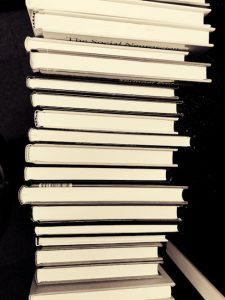The Chilling Impact of Book Bans: Censorship in the Modern Era
Banning books, a practice that has existed for centuries is experiencing a resurgence in modern times. From the burning of ancient texts to the censorship of contemporary literature, the suppression of ideas has always been used to control narratives, shape beliefs, and silence dissent. This article explores the damaging impacts of book banning, delving into the historical context, the contemporary resurgence, and the devastating consequences for individuals, communities, and society.
Throughout history, book bans have maintained power structures and suppressed dissenting voices. In ancient Greece, Socrates was condemned to death for corrupting the youth with his teachings. During the Middle Ages, the Catholic Church banned books deemed heretical, including works by Galileo Galilei and Nicolaus Copernicus. In Nazi Germany, the burning of books by authors considered “un-German” was a chilling symbol of the regime’s totalitarian control. These historical examples demonstrate the enduring threat of book bans to freedom of thought and expression.
Banning books violates fundamental human rights, particularly the right to freedom of expression and access to information. It stifles intellectual growth, restricts critical thinking, and ultimately undermines the very fabric of a democratic society. This practice silences diverse voices, suppresses alternative viewpoints, and prevents the free exchange of ideas essential for progress and understanding. By limiting access to information and ideas, book bans create fear and self-censorship, discouraging individuals from engaging in meaningful discourse and challenging established norms.
The contemporary resurgence of book bans is particularly alarming, as it often targets books that address sensitive topics such as race, gender, sexuality, and history. These bans are frequently driven by ideological agendas, seeking to control the narrative and silence voices that challenge dominant perspectives. For example, in the United States, there has been a significant increase in attempts to ban books from school libraries, with many of these books featuring characters or themes deemed “inappropriate” or “offensive” by certain groups. These attempts to censor books often target marginalized communities and their experiences, further perpetuating systemic inequalities and silencing their voices.
The importance of addressing book bans lies in their detrimental impact on education, intellectual freedom, and the pursuit of truth. By limiting access to information and ideas, these bans hinder the development of critical thinking skills, intellectual curiosity, and a nuanced understanding of complex issues. Moreover, they create a climate of fear and self-censorship, where individuals are discouraged from engaging in meaningful discourse and challenging established norms. The consequences of book bans extend beyond individual harm, impacting the collective well-being of communities and societies. By suppressing diverse perspectives and hindering the free exchange of ideas, book bans stifle innovation, creativity, and progress.
Historical Context: A Century of Censorship
The history of book banning is intricately intertwined with societies’ evolution and attempts to control information. Throughout history, various regimes and societal groups have sought to suppress books that challenge their ideologies, religious beliefs, or social norms. From the burning of the Library of Alexandria to the persecution of Galileo for his scientific discoveries, the suppression of knowledge has been a recurrent theme.
In the 20th century, political ideologies and social anxieties often fueled book bans. The rise of fascism and communism led to the suppression of books that promoted opposing viewpoints. In contrast, anxieties about the Cold War and the threat of communism fueled the banning of books considered subversive or promoting communist ideology. During the McCarthy era, the fear of communist infiltration in the United States resulted in the blacklisting of authors and the removal of books from libraries, stifling academic freedom and intellectual discourse. This period saw the banning of works by renowned authors like Bertolt Brecht, Langston Hughes, and W.E.B. Du Bois, highlighting the chilling effect of censorship on artistic expression and critical thought.
The Modern Resurgence: A Threat to Open Discourse
Despite the progress in promoting freedom of expression in the post-Cold War era, book banning has experienced a resurgence in recent years. Concerns about sensitive topics, political agendas, and cultural sensitivities often drive this contemporary wave of censorship. It is fueled by a growing trend of seeking to control information and silence dissenting voices, particularly on issues related to race, sexuality, gender identity, and political beliefs. This trend is not limited to specific countries or regions; it is a global phenomenon, with book bans occurring in developed and developing nations.
One of the most prominent examples of this resurgence is the rise of attempts to ban books with LGBTQ+ themes in schools. These efforts are often driven by conservative groups who argue that such books are inappropriate for children and promote harmful ideologies. This trend is alarming as it denies young people access to diverse perspectives and fosters an environment of intolerance and discrimination. It also sends a dangerous message that specific identities and experiences are unworthy of representation or discussion. This is particularly concerning as LGBTQ+ youth are already at a higher risk of bullying, harassment, and suicide, and access to books that reflect their experiences can provide crucial support and validation.
Another alarming trend is the banning of books that address critical race theory or systemic racism. These efforts often stem from a desire to avoid confronting uncomfortable truths about history and society, and they can harm education and social progress. By suppressing discussions about race and inequality, we risk perpetuating harmful stereotypes and hindering efforts to create a more just and equitable society. The banning of books like ‘The Hate U Give’ by Angie Thomas and ‘Stamped from the Beginning’ by Ibram X. Kendi, both of which explore themes of racism and social justice, is a testament to the dangers of this trend.
The Damaging Impacts: Stifling Intellectual Freedom and Education
The consequences of book banning are far-reaching and deeply damaging to individuals, communities, and society. These practices undermine the foundations of a democratic society by limiting access to information, restricting intellectual freedom, and hindering the development of critical thinking skills. By silencing diverse voices and suppressing alternative viewpoints, book bans create fear and self-censorship, hindering the free exchange of ideas and fostering intellectual stagnation. This can lead to a narrowing of perspectives and a decline in the quality of public discourse as individuals become less willing to challenge established norms or engage in meaningful debate.
Book bans also have a profound impact on education. When students are denied access to a wide range of perspectives and ideas, their ability to learn and develop a nuanced understanding of complex issues is compromised. This lack of exposure to diverse viewpoints can lead to a narrow and distorted understanding of the world, hindering their ability to engage in meaningful discourse and solve societal challenges. Furthermore, banning books sends a chilling message to authors and publishers, discouraging them from exploring sensitive or controversial topics. This can lead to a self-censorship effect, where authors hesitate to address critical issues for fear of reprisal or public outcry. This chilling effect can profoundly impact the diversity and richness of literature, ultimately depriving readers of valuable insights and experiences.
In conclusion, book bans are a dangerous and insidious form of censorship that profoundly impacts intellectual freedom, education, and the health of our democracy. By limiting access to information and silencing diverse voices, these practices hinder our ability to learn, grow, and create a more just and equitable society. We must stand up against book bans and defend the right to free expression, ensuring that all voices are heard and all perspectives are considered.
Banning books is a dangerous and destructive practice that undermines the foundations of a free and democratic society. It restricts access to information, stifles intellectual freedom, and hinders the development of critical thinking skills. By silencing diverse voices and suppressing alternative viewpoints, book bans create fear and self-censorship, ultimately hindering the pursuit of truth and understanding. This chilling effect extends beyond the specific books targeted, as individuals may hesitate to express their ideas or explore challenging topics for fear of reprisal.
The consequences of book banning are far-reaching and can have a profound impact on individuals and society as a whole. For instance, students deprived of access to diverse perspectives may develop narrow worldviews and struggle to engage in meaningful discussions on complex issues. Furthermore, the suppression of literature that explores sensitive or controversial topics can lead to a lack of understanding and empathy for marginalized communities. This can perpetuate prejudice and discrimination, hindering progress towards a more just and equitable society.
The history of book banning is replete with examples of its detrimental effects. In Nazi Germany, the burning of books by the regime was a symbolic act of censorship aimed at silencing opposition and promoting its ideology. Similarly, authoritarian regimes worldwide have banned books to control information and suppress dissent. These examples underscore the importance of safeguarding intellectual freedom and the right to access information, regardless of its content.
To combat this trend, it is crucial to raise awareness about the dangers of book banning and to promote a culture of intellectual freedom and open discourse. We must defend the right to access information and ideas, regardless of their controversial nature, and challenge those who seek to silence dissenting voices. This requires active engagement from individuals, educators, librarians, and policymakers. By engaging in critical thinking, promoting tolerance, and advocating for freedom of expression, we can ensure that the power of literature continues to serve as a vital tool for education, enlightenment, and societal progress.
Ultimately, the fight against book banning is a fight for the future of our society. By embracing intellectual freedom and fostering a culture of open dialogue, we can create a world where diverse perspectives are valued, and the power of literature can continue to inspire, educate, and empower future generations. Our responsibility is to ensure that the past and present voices are not silenced and that the pursuit of knowledge and understanding remains a fundamental right for all.
Top Five Most Challenged Books of 2023, according to the American Library Association
1. Gender Queer: A Memoir by Maia Kobabe
2. All Boys Aren’t Blue by George M. Johnson
3. This Book Is Gay by Juno Dawson
4. The Perks of Being a Wallflower by Stephen Chbosky
5. Flamer by Mike Curato
6. The Bluest Eye by Toni Morrison
7/8. (tie) Me and Earl and the Dying Girl by Jesse Andrews
7/8. (tie) Tricks by Ellen Hopkins
9. Let’s Talk About It: The Teen’s Guide to Sex, Relationships, and Being a Human by Erika Moen and Matthew Nolan
10. Sold by Patricia McCormick

Photo by Luis Quintero on Pexels








I don’t think the title of your article matches the content lol. Just kidding, mainly because I had some doubts after reading the article.